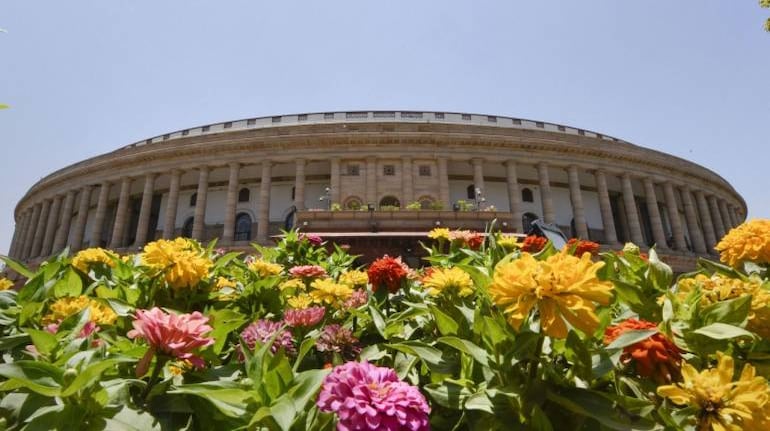



The Lok Sabha on December 10 midnight passed the contentious Citizenship (Amendment) Bill, 2019, that seeks to provide Indian citizenship to to non-Muslim refugees from Bangladesh, Afghanistan and Pakistan after facing religious persecution there.
After over seven-hour-long debate, the Bill was passed in the Lok Sabha with 311 members favouring it and 80 voting against it.
Several amendments brought by opposition members, including one by Shiv Sena MP, were defeated either by voice vote or by a division.
According to the Bill, members of Hindu, Sikh, Buddhist, Jain, Parsi and Christian communities, who have come from Pakistan, Bangladesh and Afghanistan, till December 31 2014, facing religious persecution there, will not be treated as illegal immigrants but given Indian citizenship.
Reacting to the development, Prime Minister Narendra Modi said that he was "delighted" that the Lok Sabha has passed the Bill after a "rich and extensive debate".
"I thank the various MPs and parties that supported the Bill. This Bill is in line with India’s centuries old ethos of assimilation and belief in humanitarian values," PM Modi said in a tweet.
"I would like to specially applaud Home Minister Amit Shah Ji for lucidly explaining all aspects of the Citizenship (Amendment) Bill, 2019. He also gave elaborate answers to the various points raised by respective MPs during the discussion in Lok Sabha," the prime minister added.
Earlier, while replying to the Opposition's allegations that the Citizenship (Amendment) Bill is divisive in nature, Union Home Minister Amit Shah had asserted that the proposed legislation is not in violation of constitutional provisions.
It will give relief to people living a painful life after facing persecution in neighbouring countries, he said.
Had India not been divided on religious lines, there was no need for the Citizenship (Amendment) Bill, he said targeting the opposition Congress.
The Bill has triggered widespread protests in northeastern states with a large section of people and organisations opposing the Bill, saying it will nullify the provisions of the Assam Accord of 1985, which fixed March 24, 1971, as the cut-off date for deportation of all illegal immigrants irrespective of religion.
To assuage feelings of tribals of the Northeast, where many feel that permanent settlement of illegal immigrants will disturb the region's demography, the government has made provisions under which the Bill will not be applicable in the Inner Line Permit (ILP) regime areas and those tribal regions that are governed under the Sixth Schedule of the Constitution.
"In Citizenship Act, in Section 2 in sub-section (i), in clause (b) the following proviso shall be inserted namely: "provided that any person belonging to Hindu, Sikh, Buddhist, Jain, Parsi or Christian community from Afghanistan, Bangladesh or Pakistan, who entered into India on or before the 31st day of December 2014 and who has been exempted by the central government by or under clause (c) of sub-section (2) of section 3 of the passport (Entry into India) Act, 1920 or from the application of the provisions of the Foreigners Act 1946 or any rule or order made there under shall not be treated as illegal migrants for the purposes of this Act," the Bill said.
Such refugees will be given Indian citizenship after they have resided in India for five years (six years in CAB 2016), instead of 11 years earlier, it said.
The Bill also proposes to give immunity to such refugees facing legal cases after being found illegal migrants.
According to the proposed legislation, the amendment will not be applicable to the tribal areas of Assam, Meghalaya, Mizoram or Tripura as included in the Sixth Schedule to the Constitution and in the areas covered under The Inner Line, notified under the Bengal Eastern Frontier Regulation, 1873.
The ILP regime is applicable in Arunachal Pradesh, Nagaland and Mizoram.
The Bill also proposes to incorporate a sub-section (d) to Section 7, providing for cancellation of Overseas Citizen of India (OCI) registration where the OCI card-holder has violated any provision of the Citizenship Act or any other law in force.
However, the cancellation order shall not be passed unless the OCI card-holder has been given a reasonable opportunity to be heard. This amendment was also proposed in the 2016.
The Bill was an election promise of the BJP in the 2014 and 2019 Lok Sabha polls.
The BJP-led NDA government had introduced the Bill in its previous tenure and got the Lok Sabha's approval. But it did not introduce it in the Rajya Sabha, apparently due to vehement protests in the Northeast.
That Bill lapsed following the dissolution of the last Lok Sabha.
(With PTI inputs)
Discover the latest Business News, Sensex, and Nifty updates. Obtain Personal Finance insights, tax queries, and expert opinions on Moneycontrol or download the Moneycontrol App to stay updated!
Find the best of Al News in one place, specially curated for you every weekend.
Stay on top of the latest tech trends and biggest startup news.